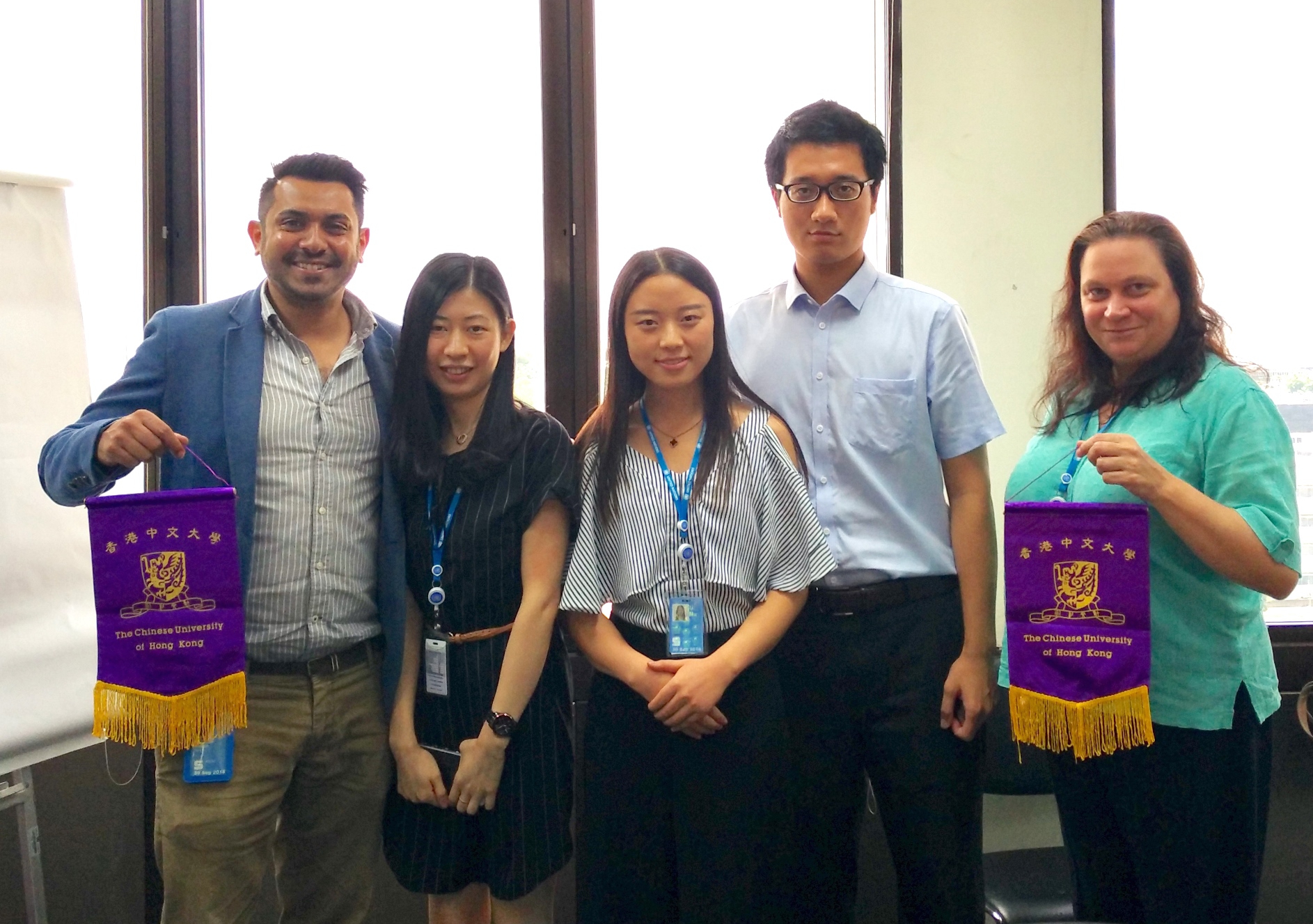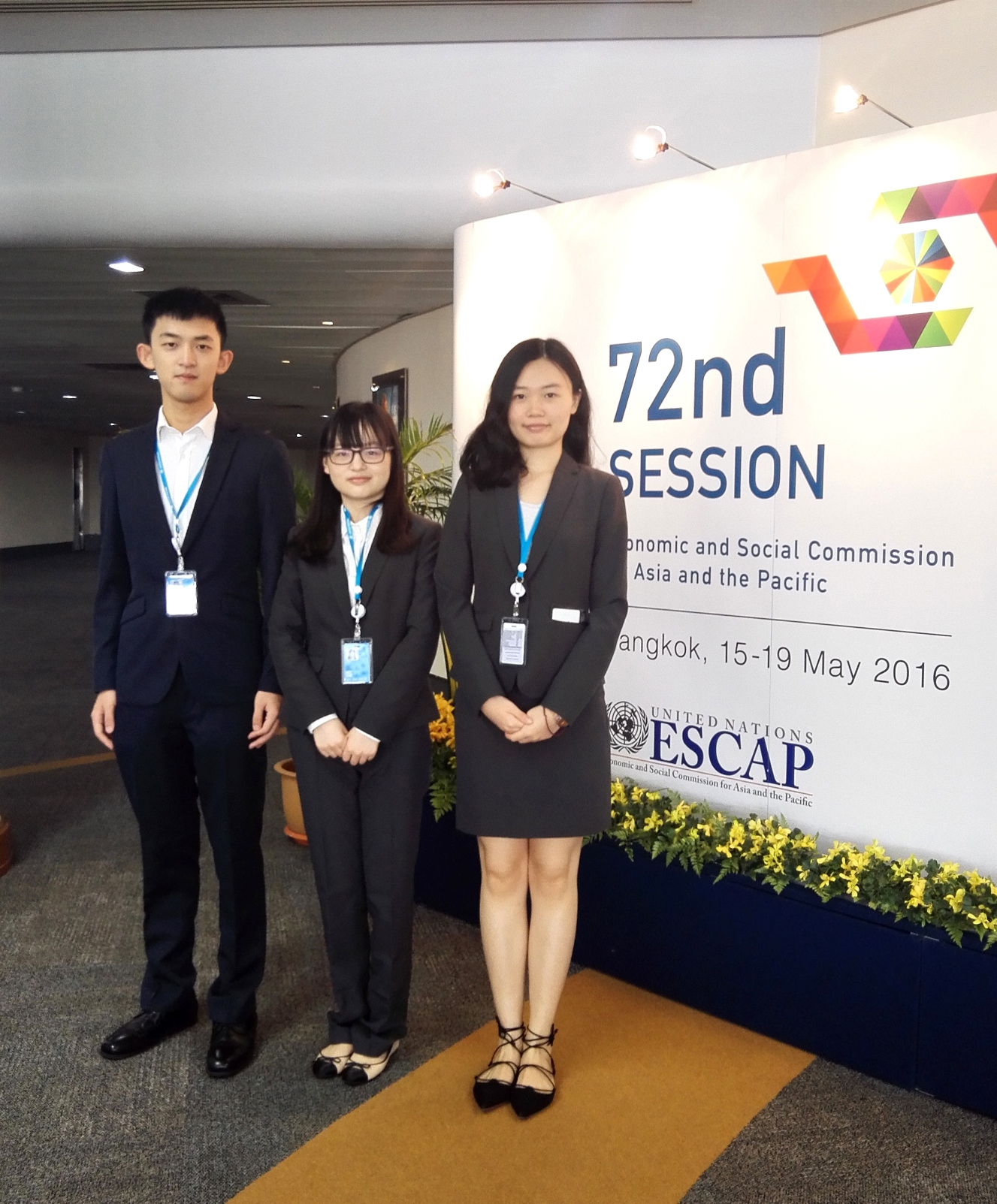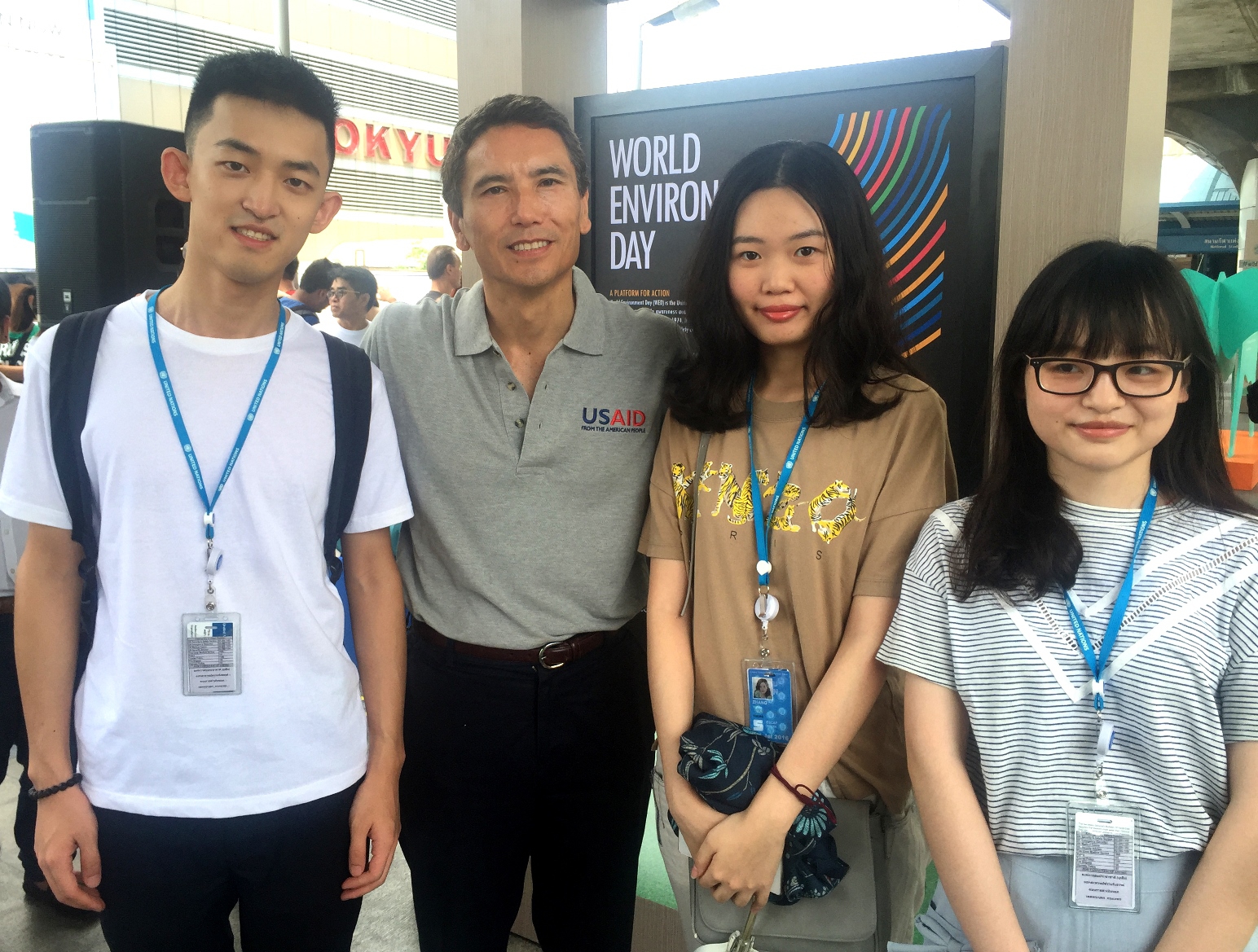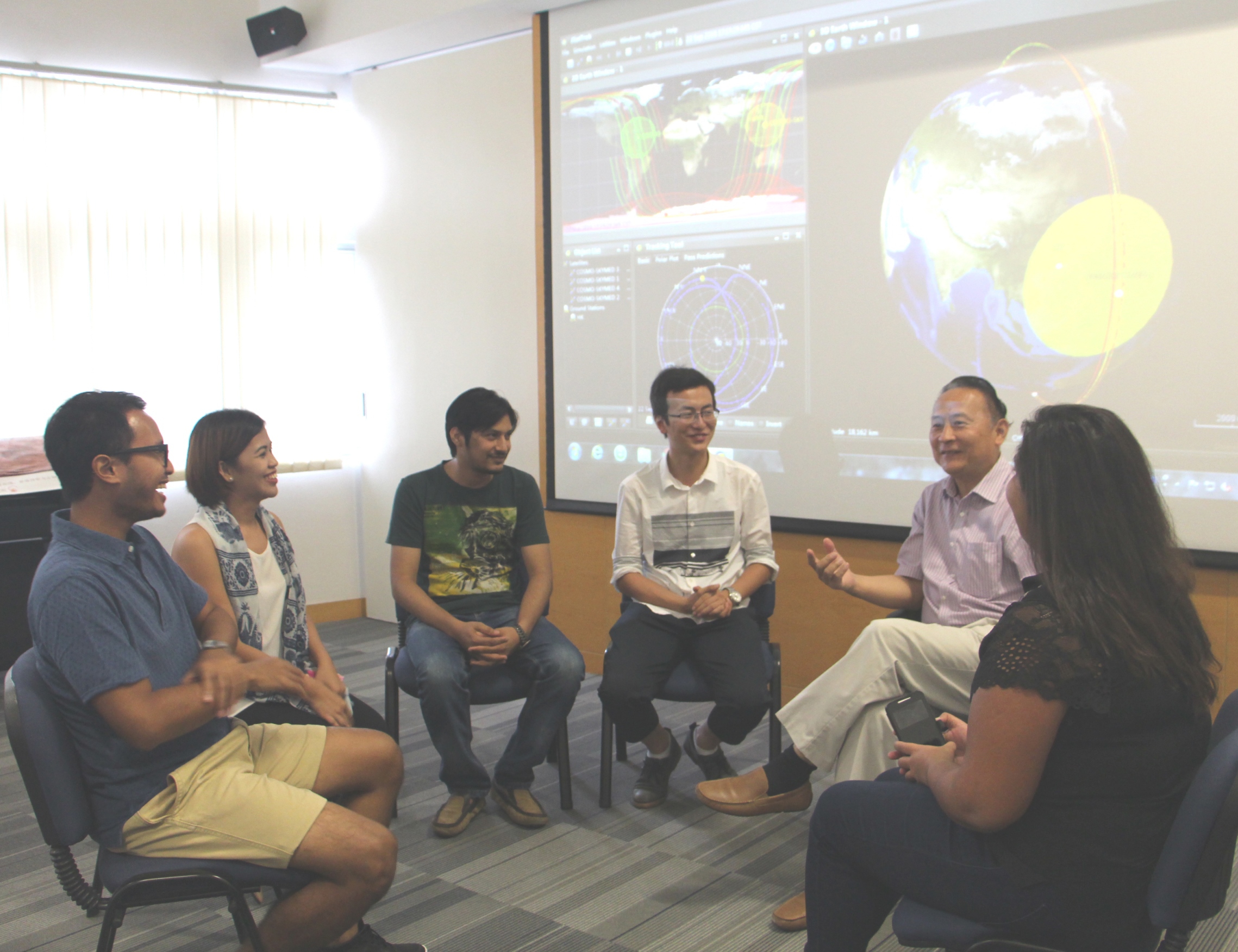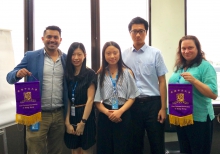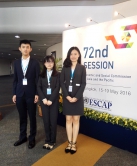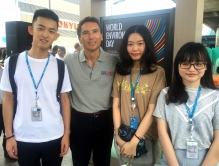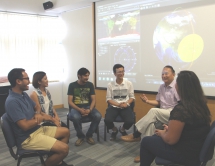CUHK
News Centre
The Fourth CUHK-UNESCAP Internship Programme a Success
The fourth phase of the internship programme jointly organized by the Institute of Space and Earth Information Science (ISEIS) of The Chinese University of Hong Kong (CUHK) and the Economic and Social Commission for Asia and the Pacific of the United Nations (UNESCAP), was concluded recently. Participating in this phase of the programme were six postgraduate students of ISEIS, Yuhan Zhang, Yiru Dai, Jiangjie Jia, Yan Ting Tse, Yue Qin and Chang Yu. Their main work during the internship included:
1) Using satellite remote sensing technology to monitor land use and land cover (LULC). The interns specially focused on the monitoring of LULC change in Cambodia and Kyrgyzstan in the last ten years, and completed the data analysis and classification for the years of 2005, 2010 and 2015. The measurement of the dynamic LULC was conducted to analyse the spatial distribution of the two countries regarding its local significance, including human socio-economic development, surface geothermal balance, soil air humidity, energy and carbon cycle, and climate change.
2) Participating in the Asia-Pacific disaster prevention and mitigation work. Interns visited the Asian Institute of Technology (AIT) to study the regional integration of the multi-hazard early warning system, especially for monsoon and flood disasters. They explored the flood forecast model framework and virtual reality technology of the Asia-Pacific region real-time monitoring network at AIT, and exploited relevant functions provided by Google Earth Pro to simulate the flood submergence. Moreover, the interns collected literature from relevant websites and government reports, to summarise the current status and progress of remote sensing technology in drought monitoring in the Asia-Pacific region.
3) Participating in relevant international meetings and workshops. The interns joined in the Workshop on Geospatial Data and Technology in the Developing Countries of the Mekong River Basin to discuss how to apply global geospatial information management to LULC dynamics, natural disasters, food security and climate change. On World Environment Day, they also joined an initiative, WILD FOR LIFE, which was jointly organized by the United Nations Environment Program (UNEP) and the Bangkok Metro Corporation.
4) Working as volunteers in the 72nd annual session of UNESCAP. The theme of the 72nd session was ‘Science, technology and innovation for sustainable development’, with the aim of developing a common and clear conceptual framework for science and technology and innovation to support member countries in the development and implementation of science and technology and innovation policies, frameworks and strategies.
The CUHK interns have gained a lot from the research work and logistics service work. During the internship, they were able to put their knowledge into practice, and, in return, their technical skills have been refined and improved. Since their affiliated sector was a disaster reduction sector, they can better understand the disaster risk to the countries in Asia and the Pacific region, such as earthquake and typhoon in Japan, tsunami and typhoon in Fiji, as well as other disasters which have seriously affected the lives of local people and property. It is worth discussing and directing further research into how to establish an effective disaster early warning system, how to rescue in the first instance, and how to rebuild after the disaster. These questions have inspired their further research and learning since their internship at UNESCAP and graduation from CUHK. It was also an invaluable experience for them to work in an environment with colleagues from different countries and culture.
Since 2013, four phases of the internship programme have been carried out by the ISEIS and UNESCAP. This United Nations internship programme has attracted the attention and admiration of related units of the United Nations. Starting from this year, UNESCAP has sponsored international students to join the taught master programme of ISEIS.
This UN internship programme has been strongly supported by Hong Kong Shun Lung Yan Chak Foundation since 2013.
The CUHK interns participate in the initiative, WILD FOR LIFE, organized by UNEP and the Bangkok Metro Corporation.


